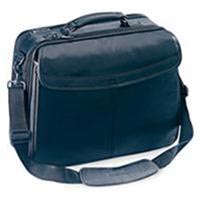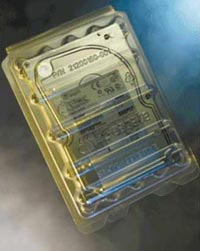Protect digital devices when traveling far
Are you worried that an airport security check might make your laptop stay in the luggage compartment? Or fear that the scanner will ruin important data on the hard drive?
Here are some tips for you when encountering such cases.
No matter how carefully you pack, checking electronic devices can still cause adverse effects to your 'sweets'.
As at US airports, The US Transportation Security Administration (TSA) reserves the right to inspect any suspicious luggage bag, and when TSA employees do so. They don't have to repack the baggage for you like before they get busted.
In addition, the other consequences you may find are lost luggage, theft or delayed baggage repayment . before the risk of terrorism in the sky.
Here's what you can do to minimize the effects on your items.
1. Must be mentally prepared for all possibilities
Mr. Steve Heiner, a longtime photographer and technical director of Nikon, warned: ' One thing I can say is that when packing things you must always think you are likely to be inspected. at the last minute '. This is not only true for cameras, but also for many other devices. Avoiding putting them in hard-to-reach locations will help you minimize collisions when you have to unload items to check.
2. Should pack many layers
Ideally, if your sensitive devices can fit in a cotton-padded bag and fit nicely into a suitcase. Mr. Heiner often carries with him a bag containing a small camera so he can put in his iPod and mobile phone. Then he put this bag in his backpack, ' Sometimes there are suitcases checked and there are still vacant places I will put my camera bag in there. So there's another shockproof class and I don't have to worry about malfunctioning . '
3. Separate the battery, charger and other accessories

The laptop-specific bag is an indispensable item
When mixed together, things like this can create an unmistakable mess on the X-ray machine whether they are in luggage or in checked bags.
By separating them with isolated bags, you can easily get these things out of your luggage bag before going through the security machine (light bags that can be folded neatly right away are available). ). When something has a problem, the inspector just has to open a small bag instead of unloading your luggage.
4. Remember to fully charge the battery
Although you should remove the battery separately from the device, be sure to charge your battery pack full of electricity so that if the security officer asks you to turn on the device, you don't have to wait until the battery is charged. What happens when your flight is checked out? So make sure you have a full battery pack or at least a direct power adapter.
5. Fragile items should be in the middle of the suitcase
With the best equipment is in the middle of the suitcase and is surrounded by clothes to prevent them from being moved. Do not use soft bags but use 'sturdy' suitcases, which will better protect your device.
If you have many devices, let them not be able to bump into each other and remember to wrap them one by one.
6. Use genuine bags
If you own a digital camera with an optical lens or just a 'point and shoot', it's better to use a dedicated pouch for them. These bags have both battery storage, extra batteries, lens compartment . and most importantly, they fit snugly with your camera.
If you use a third-party bag and it is slightly larger than the device, the easiest way is to wrap the device with a pair of socks or a scarf to fit into the compartment.
7. What about laptops?
Before taking your laptop on the road, don't forget a very necessary task to backup all your important data and leave it at home.
As for the data you have collected during your business trip or photos when traveling, copy a copy to optical discs, flash memory or use online data backup services to avoid risk.
Also, keep in mind that you must actually turn off the computer when not in use, remove the battery from the device and store it in a safe location (especially avoid stanby or hibernate mode).
8. What to do with mobile phones?
As with laptops, before you go, you should transfer your phone contacts to SIM and use the software to create a backup of SIM (currently there are many such software on the network). In addition, some companies also have convenient phonebook backup services such as VDC's.
Remember that mobile phones must turn off the radio when on the plane, so unless your mobile phone has Flightmode function, turn it off, remove the battery, SIM and put it in a compartment of the bag .
Not surprisingly, mobile phone manufacturers like Nokia recommend that the best phones should enjoy the journey in the storage compartment.
9. What about a hard drive?

A simple box like this will help you a lot
When you buy a hard drive, whether it's plug-in or plug-in, 1-inch drive or even hard drive for notebooks, keep in mind that you have to choose which drive has shockproof design. too good.
For example, Seagate drives with a technology that separates the reader from the disc surface, minimizing impact damage. The company says the drive can withstand the impact of falling from a 3-foot height to concrete.
However, it is still best to separate the hard drives away from hard surfaces like the side of the suitcase and remember to wrap them in antistatic bags and a layer of towels outside.
If your hard drive after a long trip suddenly becomes 'uneasy', don't panic. Most data can be recovered - of course, its price. Restoring these data is possible, because often the impact on the trip is only mechanical impacts.
10. Some other suggestions
When traveling or traveling, you can buy insurance for your luggage. These types of insurance are often available in some travel companies or airlines.
In addition, you can choose to book your baggage transfer service to your destination before you arrive. However, this can only be done when you travel from abroad to Vietnam. Currently, there are no domestic service providers.
And finally, one thing you should do before doing all that I have advised in this article: 'Please contact the airline directly to get detailed information about the goods allowed to bring. board the plane as well as their transport conditions'. Wish you have a happy and safe trip !!!
HOANG TUNG ( General )